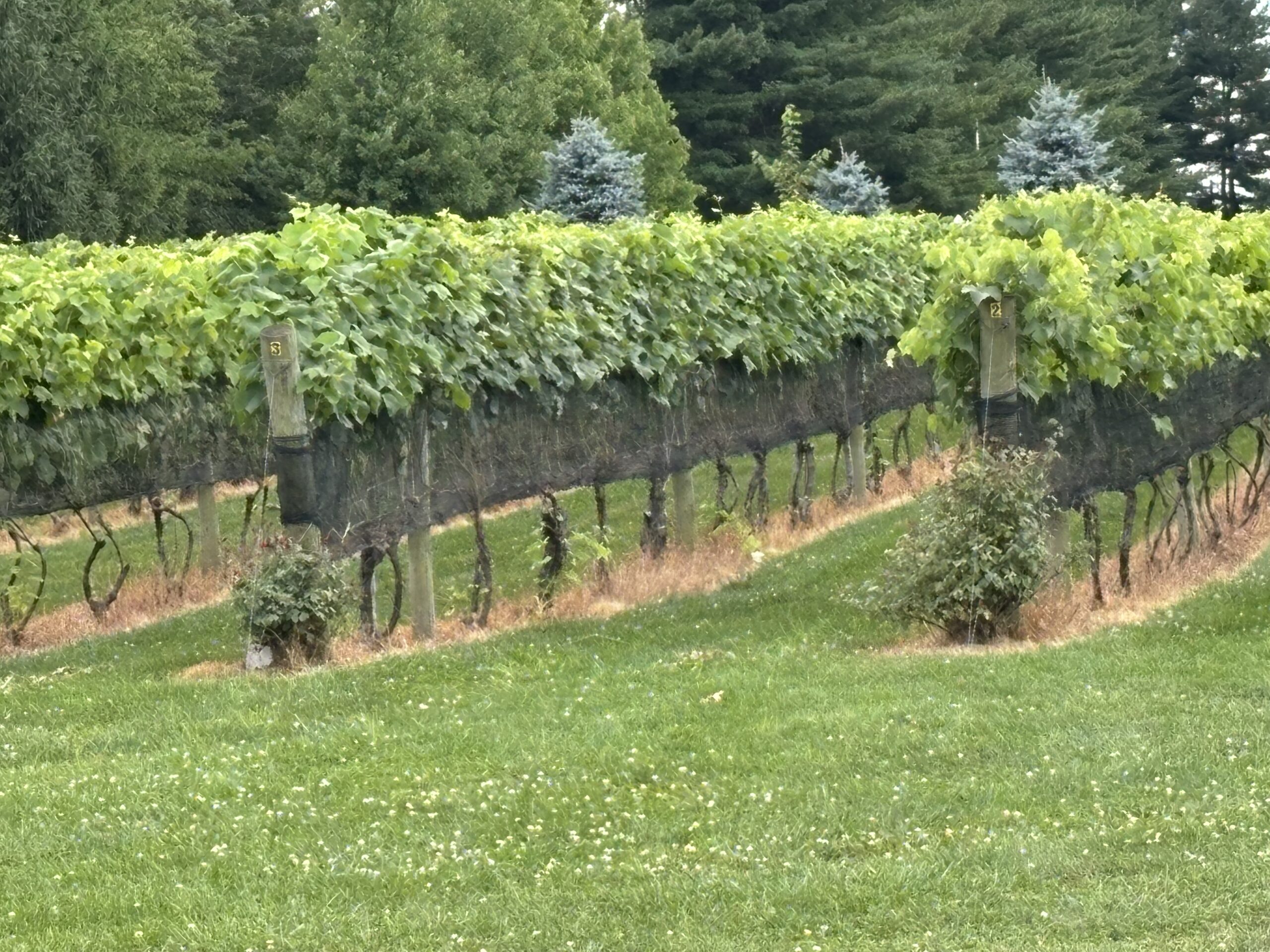
Alright, so we all know wine comes from grapes, and grapes come from vineyards. But have you ever thought about what it takes to grow those grapes and turn them into wine? Turns out that it’s not just about planting vines and waiting for magic to happen. A lot of work goes into farming, including ensuring it’s done in a way that doesn’t harm the environment. That’s where sustainable winemaking comes in.
New Jersey wineries are stepping up their eco-friendly practices.
One big thing they’re focusing on is reducing chemical use. Many vineyards are switching to natural methods. They are not spraying pesticides and fertilizers. For example, they use cover crops, which are plants that help keep the soil healthy. They also bring in helpful insects to control pests. Beneduce Vineyard in Pittstown is River Friendly Certified. Their farming includes over 50% of their blocks being completely herbicide-free, with more transitioning each year.
Some wineries are using solar power to run their operations.

Another cool thing? Brook Hollow Winery in Columbia has solar panels installed on their buildings. Beneduce is in the process of installing panels on their winery, too. They will be providing EV chargers, too. Think about it—making wine requires a lot of energy, from crushing grapes to aging wine in temperature-controlled rooms. By switching to renewable energy, wineries can lower their carbon footprint and still make great wine.
Water conservation is another big deal.
Vineyards need water, but wasting it isn’t an option. Many New Jersey wineries are using drip irrigation. This method delivers water directly to the roots instead of just spraying it everywhere. It saves water and keeps the vines healthier. Beneduce and Brook Hollow both utilize “rain gardens.” These gardens use water from impervious surfaces like rooftops and parking lots. This water is captured and retained on site. The process reduces runoff and erosion.
Beneduce Winery is being eco-friendly in several ways. They maintain over 30 bee hives to produce their own honey. They are also farming over 10 acres of heirloom wheat to make their own flour. Beneduce is also a plastic-free wine packaging facility using only FSC-certified paper for labels. Their building was made with green materials such as reclaimed mushroom wood, recycled newspaper insulation, fieldstones from their farm, etc.
Brook Hollow composts all their discarded grape materials. Plus, they only use LED lightbulbs throughout their facility.
Cedar Rose Vineyards, located in Millville, used all reclaimed materials to build and decorate their tasting room. They used everything. This includes the trees on the property for the tasting bar. They also used lumber and tin ceiling tiles from an old barn. You can watch the interview at https://youtu.be/mJivjDnhVQU
So, next time you grab a bottle of New Jersey wine, know that a lot of effort is involved. The wine is being made in a way that’s better for the planet. And honestly, wine just tastes better when you know it’s made the right way!
Please like, subscribe, and share. Most of all… Keep stomping!
